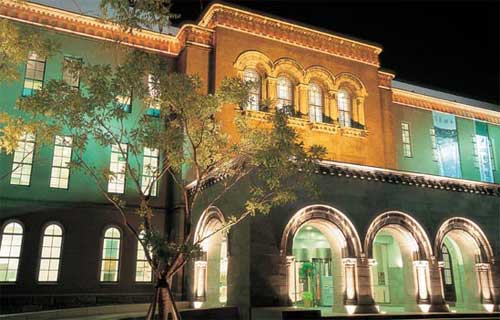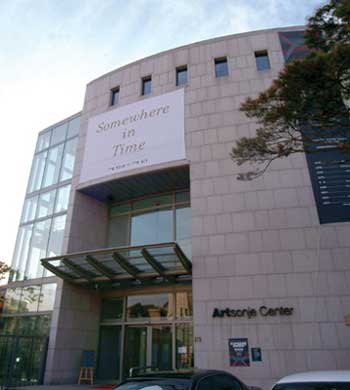The Beijing Olympic flame is scheduled to arrive in South Korea early Sunday and a torch relay is to be staged in Seoul later in the day. The following are some basic facts about the capital of the Republic of Korea (South Korea) .
Seoul is located in the northwestern part of the country on the Han-gang (Han River) 60 kilometers from the Yellow Sea. It is the largest city and chief commercial, manufacturing, administrative, and cultural center of South Korea.

Seoul Museum of Art
A city with a long history, Seoul was popularly called Seoul (meaning capital city) in Korean during both the Yi dynasty (1392-1910) and the period of Japanese rule (1910-45), although the official names in those periods were Hansong and Kyongsong, respectively. The city has officially been called Seoul since 1945, when the Korean Peninsula was liberated from 35 years of Japanese colonial rule.
Seoul is divided by the Han River, which flows from east to west toward the Yellow Sea. The city is surrounded by mountains, the highest of which is Bukhansan Mountain, 836 meters above sea level.
Seoul has numerous small and large parks within easy reach. Places of historical interest, including Ch'anggyong, Ch'angdok, Kyongbok, and Toksu palaces and Chong-myo Shrine, attract large numbers of citizens and tourists every year. The city also has excellent sports and recreational facilities, notably the Seoul Sports Complex, which was built for the Asian Games in 1986 and the Olympic Games in 1988.

Art Sonje Center
Architectural monuments include the Independence Arch, built near the site of the old West Gate of the city in 1896. A statue of Admiral Yi Sunsin, who defended Korea against the Japanese invasions of 1592 to 1597, stands on an island at the center of Sejongno, the main downtown thoroughfare. A statue of King Sejong, who invented the Korean alphabet Hangeul in 1446, is located in Deoksu Palace.
In 1988 it was the site of the Summer Olympic Games. The 1988 Games transcended ideological differences and national interests, and was thus deemed by Juan Antonio Samaranch, former president of International Olympic Committee (IOC) as "the most successful in Olympic history."
(Xinhua News Agency April 26, 2008)